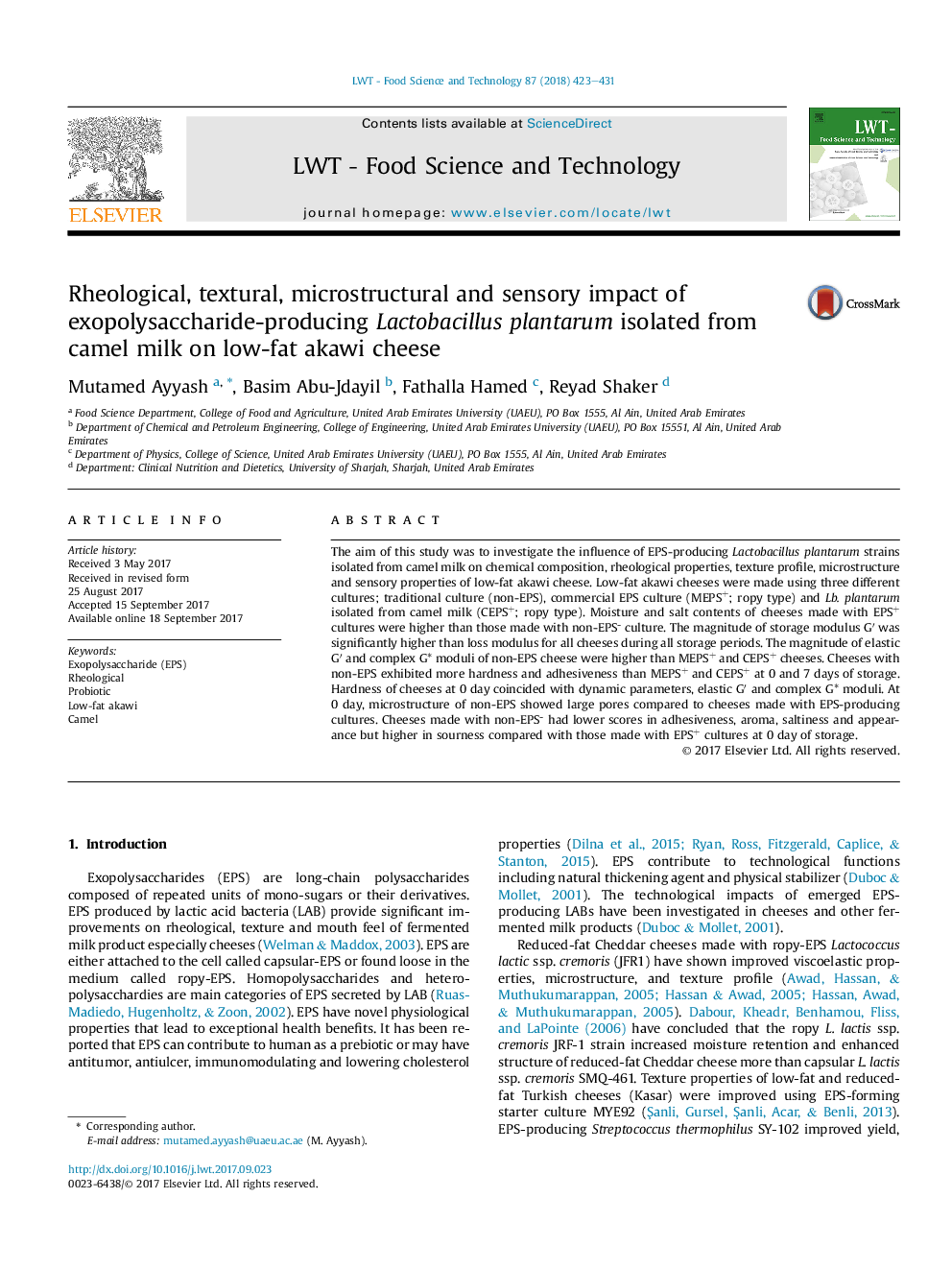| Article ID | Journal | Published Year | Pages | File Type |
|---|---|---|---|---|
| 5768629 | LWT - Food Science and Technology | 2018 | 9 Pages |
â¢L. plantarum isolated from camel milk has novel technological properties.â¢Low-fat akawi cheese made with L. plantarum was comparable to commercial cultures.â¢Exopolysaccharides produced by L. plantarum improved rheological properties.â¢Sensory characteristics of low-fat akawi made by EPS + culture were acceptable.
The aim of this study was to investigate the influence of EPS-producing Lactobacillus plantarum strains isolated from camel milk on chemical composition, rheological properties, texture profile, microstructure and sensory properties of low-fat akawi cheese. Low-fat akawi cheeses were made using three different cultures; traditional culture (non-EPS), commercial EPS culture (MEPS+; ropy type) and Lb. plantarum isolated from camel milk (CEPS+; ropy type). Moisture and salt contents of cheeses made with EPS+ cultures were higher than those made with non-EPS⻠culture. The magnitude of storage modulus GⲠwas significantly higher than loss modulus for all cheeses during all storage periods. The magnitude of elastic GⲠand complex G* moduli of non-EPS cheese were higher than MEPS+ and CEPS+ cheeses. Cheeses with non-EPS¯ exhibited more hardness and adhesiveness than MEPS+ and CEPS+ at 0 and 7 days of storage. Hardness of cheeses at 0 day coincided with dynamic parameters, elastic GⲠand complex G* moduli. At 0 day, microstructure of non-EPS showed large pores compared to cheeses made with EPS-producing cultures. Cheeses made with non-EPS⻠had lower scores in adhesiveness, aroma, saltiness and appearance but higher in sourness compared with those made with EPS+ cultures at 0 day of storage.
